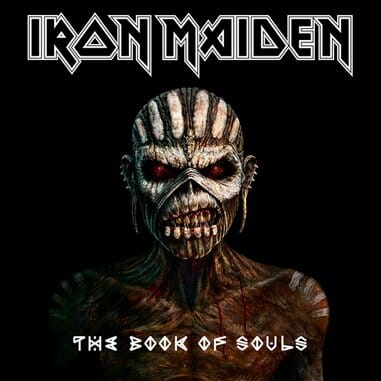Iron Maiden: The Book of Souls

There aren’t many metal bands with the legacy of Iron Maiden. The heavy metal legends released their 1980 debut at just the right time, capturing an existing audience reared on Sabbath, KISS and Priest, while subsequent releases caught the ears of a younger generation hungry for the thrill of fast riffs and dark imagery.
From Maiden’s early punk-inspired days with original vocalist Paul Di’Anno, to the more ambitious and best-known Bruce Dickinson years, and even a short and unfortunate detour with vocalist Blaze Bayley in the late ’90s, their reach has remained not just intact, but continues far and wide. Iron Maiden returned to form after Dickinson rejoined the band for 2000’s Brave New World. It also marked an ambitious period for the band, as their songs grew increasingly longer and more complex. But just because you can, doesn’t always mean you should.
Which brings us to Iron Maiden’s 16th album, The Book of Souls, a double LP that attempts to outdo everything they’ve written over the past 35 years—this from a band whose catalog includes some of metal’s classic and most compelling opuses “Phantom of the Opera,” “Hallowed Be Thy Name,” and “Rime of the Ancient Mariner.” As with 2003’s Dance of Death and 2006’s excellent and sprawling A Matter of Life and Death, The Book of Souls takes Maiden even further from their punk past and deeper into their prog present. It’s an impressive piece of work, but it gets bogged down by the band’s own ambition.
-

-

-

-

-

-

-

-

-

-

-

-

-

-

-

-

-

-

-

-

-

-

-

-

-

-

-

-

-

-

-

-

-

-

-

-

-

-

-

-








































